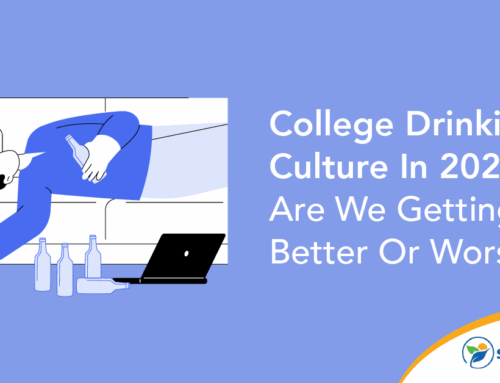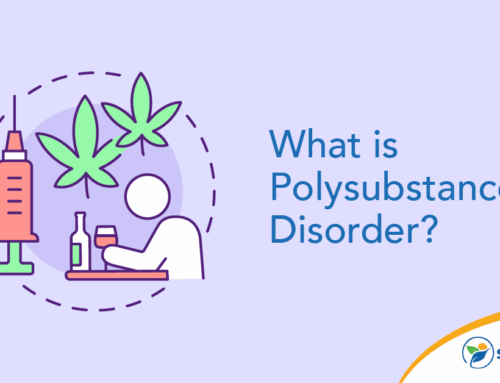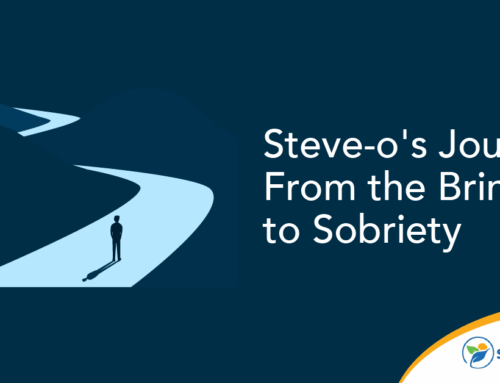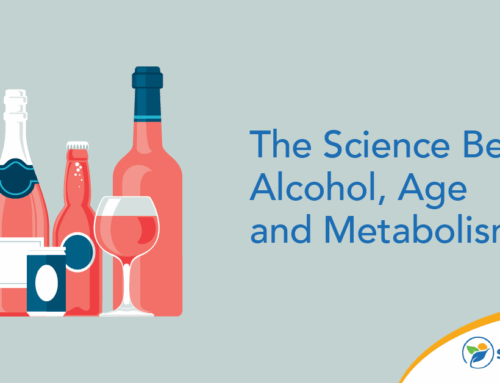You may have heard the saying someone has been “driven to drink,” a common phrase that suggests a person’s abuse of alcohol is due to stress in their life. However, the reality may be the opposite. While some people may develop alcohol dependency as a coping mechanism for mental health issues, studies suggest that excessive drinking can lead to stress due to the link between alcohol and cortisol (the body’s stress hormone).
Around 12.7% of the U.S. adult population meets the criteria for having an alcohol use disorder, while 76% of Americans say they’ve recently experienced stress-related health effects. Find out how alcohol and cortisol are connected and what effects this can have on a person’s mental health over the long term.
The Role of Cortisol in the Body
Cortisol is the body’s primary stress hormone; it increases your blood sugar level by releasing glucose. Not only does the body experience physical effects from cortisol (such as weight gain, hypertension and heightened risk of diabetes) but your brain is also impacted by glucose when the level of cortisol increases.
Excess cortisol is undeniably associated with mental health conditions and can be used as a biomarker for the severity of a condition. A 2021 study found that 50% of patients newly diagnosed with depression also had high levels of cortisol.
The Link Between Alcohol and Cortisol
Does alcohol increase cortisol in the body? The answer is yes, there’s a cortisol-alcohol connection. Engaging in excessive alcohol consumption, as occurs with alcohol use disorder, can impact the body’s regulation of cortisol levels. When the body experiences a high level of the stress hormone, the resulting neurotoxicity can cause adverse effects like:
- Poor decision-making abilities
- Memory problems
- Difficulties concentrating
- Reduced ability to learn or retain information
A high level of cortisol for a prolonged period also disrupts your natural biological stress response. This means that when a situation that actually warrants a stress response arises, you may not react appropriately because your body is so accustomed to living in this heightened state.
While you may think drinking has a calming effect that relieves stress over the short term, it can actually make it more difficult for your brain to recalibrate after experiencing stress. The result of excessive drinking is that your cortisol levels remain higher than usual for longer. This alters your brain chemistry and creates a new baseline for your body’s ability to experience a “fight or flight” response.
Understanding the Bidirectional Relationship
While the common belief might be that stress is the reason people turn to alcohol in the first place, the reality is more complex. There appears to be a bidirectional relationship between alcohol consumption and an increase in cortisol levels. This means that while alcohol influences a person’s cortisol level, the level also affects their alcohol cravings and withdrawal symptoms.
A paper published by the National Institutes of Health states that alcohol consumption stimulates cortisol secretion, while cortisol facilitates the mental rewards of alcohol consumption. This means a person who’s addicted to alcohol may also inadvertently develop a cortisol addiction.
It may seem strange that someone could become addicted to a hormone produced by their own body, but the dependency is actually on the adrenaline associated with high levels of cortisol in the body and brain. It’s possible to become unintentionally accustomed to living with the anticipation, anxiety and adrenaline rush that’s typically reserved for stressful situations. When this happens, your “new normal” revolves around finding reasons to be stressed or anxious enough to maintain the effects of adrenaline that cortisol induces. For people living with alcoholism, this furthers the cycle of addiction, prompting them to drink more.
You may experience physical symptoms that indicate your body is addicted to cortisol, such as insomnia, attention deficit, an out-of-character need to work incessantly or chronic feelings of depletion and fatigue. If you’re struggling with alcohol addiction, there’s a chance you’re also experiencing mental health effects from excess cortisol as a result.
Impact on Mental Health
Alcoholism can be difficult to detect in loved ones, especially in the early stages. However, you or someone you love might experience mental health conditions such as depression, anxiety or psychosis due to alcohol use. Signs of alcoholism can include:
- Antisocial behavior
- Secretive behavior
- Unexplained periods of anxiety or depression
If you have alcohol use disorder or are consuming alcohol in excess, you may also exhibit symptoms of withdrawal when you don’t drink. These can include insomnia, fatigue, mood swings, irritability, tremors and depression (to name a few).
The link between alcoholism and cortisol also means a person’s mental health can be impacted by cortisol addiction when they’re struggling with alcohol use. The short- and long-term mental health effects of too much cortisol in the body can include:
- Euphoria
- Irritability
- Emotional instability
- Depression
Physically, if you’re addicted to cortisol, you may experience an increased heart rate, high blood pressure and a weakened immune response. Fortunately, the cycle of alcoholism and cortisol addiction is breakable. Professional support can help you establish goals in your life and create a recovery plan that meets your needs.
Your Options for Treatment and Recovery
Seeking help for alcohol use disorder is the first step toward living a fuller, healthier lifestyle. Together, you and your counselor can determine the recovery path that makes sense for you and where you want to see yourself in the future. Whether through medically supervised detox or talk therapy, support with managing your cravings and being accountable for your decisions is key to moving forward.
Addressing alcoholism and cortisol dysregulation as soon as you become aware of the problem is essential to your long-term health. Besides adding stress management techniques like meditation and mindfulness to your daily routine, you can also make lifestyle changes. For example, eating a whole-food or plant-based diet can help naturally lower your body’s cortisol levels. Therapy is also a valuable tool for understanding the reasons behind your decision to drink, and using cognitive behavioral therapy techniques can change the way you think and make choices in the future.
At Sunlight Recovery, our team of compassionate counselors is available 24/7 to take your call. We’re eager to support you in your recovery journey and ensure you have a community around you that understands your situation and goals. Contact us today to learn more or make an appointment.







